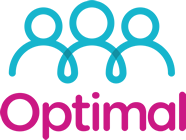On March 22, the UK reflected on a year living with the coronavirus.
Back in 2020, as the virus spread rapidly across Europe and the UK Government announced our first national lockdown, it’s unlikely any of us thought we would continue to undergo the strict regime that followed. The effects of Covid-19 have been devastating with individuals and families having to cope with death, long-term illness caused by the virus and temporary or permanent work losses. It’s not surprising to learn how the figures for people suffering from mental health issues during this time have dramatically increased.
When we were first asked a year ago to ‘stay home, protect the NHS and save lives’, including working from home wherever possible, many people were thankful for the respite from the daily grind of prepping for work, the hectic morning regime, strict time-keeping and a lengthy and costly commute to the office. Virtual meetings soon replaced physical ones in the diary and everyone learned to live with having to perform their role remotely. Now, while some seemingly took to this new life like a duck to water, for others it has been nothing shy of a slog from day one. And for all who did kick things off last March feeling OK, how are these individuals feeling a year later and how are you managing mental health in the workplace?
A recent survey from the Office for National Statistics found the number of adults feeling anxious or depressed has doubled since February 2020, before the pandemic began. It’s an astonishing figure and certainly, an issue the government, health bodies and UK businesses must tackle head-on to provide the support much of the adult population currently needs. Perhaps even more worrying is that this figure is likely much higher than reported, with many suffering in silence either because they don’t understand in full what the term mental health represents or they assume it applies to others and not themselves. After all, their feelings might be a little different to usual but they’re nothing to be concerned about or worth mentioning to anyone else.
Employers and HR specialists play a crucial role in supporting their teams through all manner of circumstances, especially so when mental health and wellbeing come into focus. Here are a few pointers
Raising Mental Health awareness
Not everyone understands what we mean by mental health, or if they do, think it applies to others and not them because they feel OK or, what they consider to be ‘normal’. By raising awareness of the topic, you’re at the very least making a once-over taboo subject much easier for people within your workplace to discuss openly, allowing them to understand in full what is meant by the term and encouraging them to consider their feelings as well as those of their colleagues. While an individual is feeling OK, they could have noticed a difference in the behaviour of a colleague, and knowing how to recognise the signs of anxiety or depression allows others to help.
Gain advice and support from experts
If you have limited time or in-house resources to upskill your staff on mental health, an external provider can help you. There are lots of organisations that offer training on mental health either to managers or your entire workforce. Here at Optimal we provide well-being reviews for which helps employers to gain a better understanding of how their employees are feeling and by providing it through a third party organisation like ourselves, it often enables employees to say much more than they maybe would if it was being undertaken by an internal team. Organisations such as Unmasked Mental Health & Well-Being Ltd provides excellent face-to-face or virtual training to organisations across the UK and their charitable organisation Unmasked Mental Health has a fantastic, easily accessible and affordable counselling support service amongst other things, for individuals suffering from mental health issues.
Check-in frequently with your team
Unless you’re working in one of the emergency services, or a sector which has become busier than ever during the pandemic – food manufacturing, pharma, logistics, care, education – it’s likely your staff has spent much if not all of the past twelve months working from home. While some will have revelled in the experience, many have found it tough to manage without their peers on tap each day for support. As a people manager, it is up to you to ensure your workforce has lots of opportunities to check-in and chat – as a group, as well as individually – to ask how they’re going and offer your support., if you do find an individual is struggling to cope, make provision for them to attend work physically if they can.
In need of some HR advice? Wherever you are in the UK, you can arrange a chat with one of our friendly professional HR advisors at any time.
Call us on 0330 0881857 or email enquiries@optimal-hr.co.uk
We’re also on Facebook, Twitter, Instagram and Linked In!



